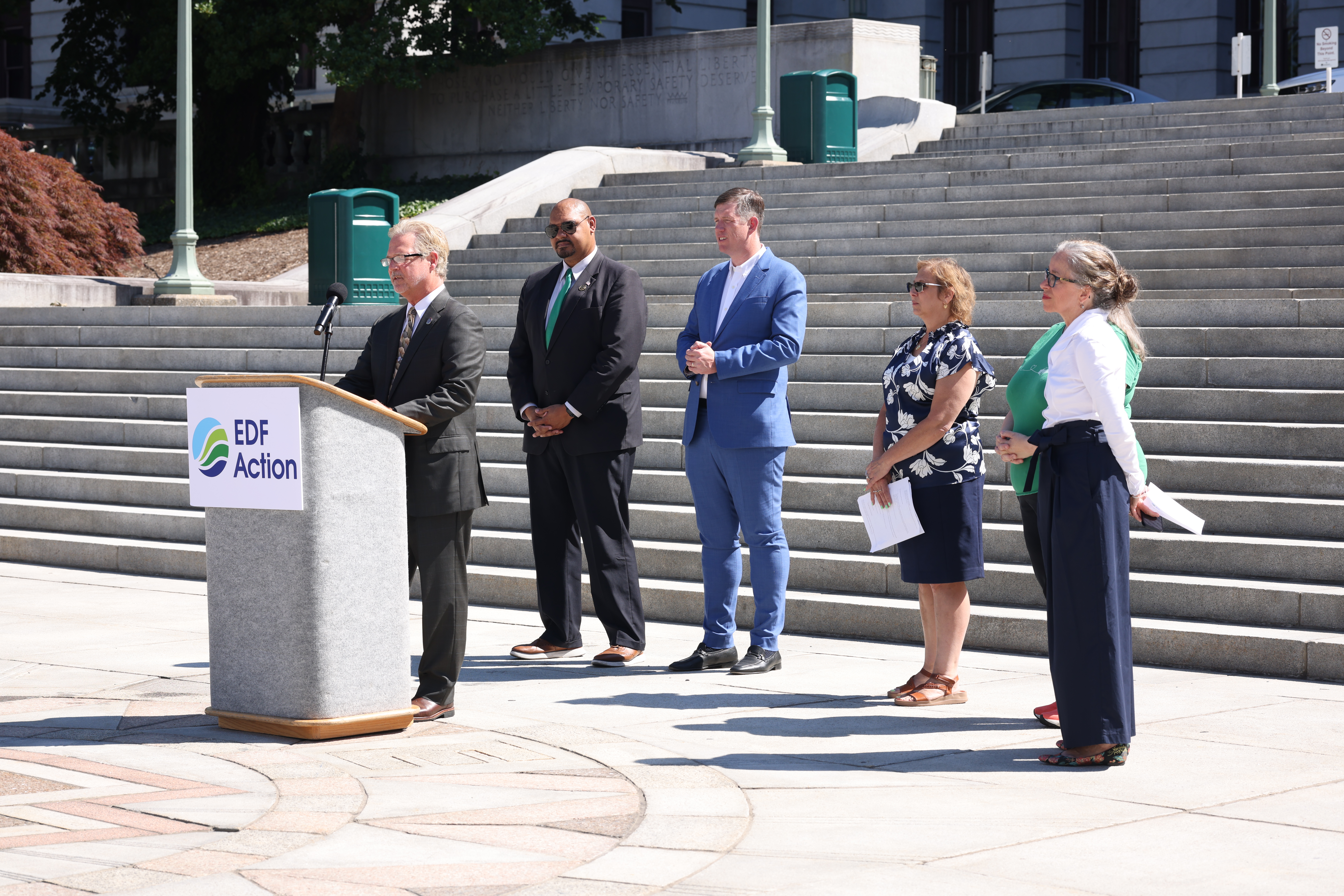The popularity of electric vehicles is on the rise. This means the need for chargers is growing, too. IBEW members across the country have been training to install the high speed charging network promised by the historic Bipartisan Infrastructure Law passed in 2021. That law dedicated $7.5 billion for an interstate charging network. The law also made IBEW’s Electric Vehicle Infrastructure Training Program, or EVITP, a federal requirement for the funding.
According to the nonprofit Environmental Defense Fund, there are more than 190,000 public EV chargers in the U.S. today, with 900 more being installed every week. The IBEW has been promoting the skill of its members when it comes to this work. Just last month the IBEW was featured at events for large interstate charging station buildouts.
“IBEW members are key to the renewable energy boom unleashed by the mandate to upgrade energy use and address climate change,” said Ed Hill Jr., IBEW business development international representative at a July event in Harrisonburg, PA. Tens of thousands of IBEW members have already been trained in the Department of Transportation’s required and IBEW-endorsed training, EVITP.
“IBEW’s rigorous training standards mean our members are equipped for the very specific requirements of the high-speed EV charging network,” said Hill. He added the IBEW is prepared to grow EV use in Pennsylvania. The state has more than 1,600 EVITP-certified electricians and more than 50 electrical contracting partners.
At a June event in Las Vegas, assistant business manager of California Local 1245 Hunter Stern was proud the IBEW was meeting the moment. “California adopted an aggressive, IBEW-endorsed EV charging infrastructure plan that has already met several of its targets,” said Hunter. He was excited about the outlook. “The era of electric vehicles and the charging infrastructure needed to power it means much-needed work for IBEW electricians and utility workers.”
The Environmental Defense Fund highlighted new statistics at the Las Vegas event that show how the Biden-Harris administration’s push for electric vehicles is causing a boom in Nevada. The Silver State’s economy grew by 12,400 new jobs and $15 billion in private-sector funding for charging stations and battery manufacturing.
Overall, the EDA’s study predicts the expansion of the EV charging infrastructure will create significant job opportunities: 160,000 new jobs by 2032. Half of those jobs will be in electrical installation, maintenance, and repair. With a growing membership of 840,000 members, the IBEW is ready to lead this EV transition.
Caption: IBEW’s Ed Hill Jr. speaks on the steps of the Harrisburg state capitol on July 2.

